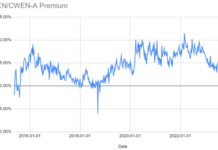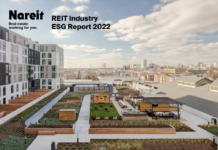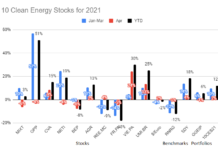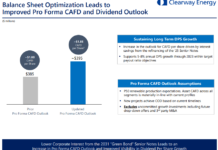Tom Konrad, CFA
 A solar project at Fort Hunter Liggett in California. Photo: US Army Corps of Engineers |
Power REIT (NYSE:PW) announced yesterday that it had closed on a deal to buy approximately 100 acres of land leased to the owners of over 20 MW of solar projects near Fresno, CA. This will be the company’s second solar transaction and increases the share of its revenue from solar to 21%. These two solar transactions put PW well on its way to becoming the nation’s first REIT to get most of its revenue from renewable energy. The balance of its revenue comes from leasing its railroad property. Whiile not renewable energy, rail is also a green asset in that transport by rail is much more fuel efficient than the alternative: trucking.
Salisbury, MA Transaction
Just last week, PW completed financing for its previous solar transaction, by closing on a $750,000 bank loan. I thought it would be helpful to dig into the newly released numbers to understand the economics of the transactions.
Below are the details of the completed transaction for land under the True North Solar farm in Salisbury, MA. These, and the details about the Fresno transaction discussed below come from the press releases, interviews with the Chairman and CEO of Power REIT, David Lesser, and my own searches of news stories and public records.
- Land: 54 Acres. Zoned commercial, near I-95. Potential for commercial development after lease term.
- Solar Farm: 5.7 MW fixed tilt PV.
- Purchase Price: $1,037,000
- Lease: 21 years, at $80,800 with a 1% annual escalator.
- Financing:
- $122,000 municipal debt, amortizing over 19 years at 5%.
- $750,000, 10 year bank loan, amortizing at 5% on a 20 year amortization schedule.
- $165,000 equity from cash on hand plus new issuance between $10 and $11.
- Real Estate Taxes: Approximately $9,000 in 2013.
This is nearly enough information to build a full financial model of the investment. The remaining unknowns are:
- How and at what rate will the remaining $508K principal of the $750K loan be refinanced in 2023?
- How will property taxes change over the term of the lease?
- What will be the land’s value after the end of the lease?
I ran two scenarios, one which I consider conservative (refinancing at 7%, 5% annual increase in taxes, flat land value) and one which I consider optimistic, but not wildly so (refinancing at 4%, 2% annual tax increases, 50% increase in the value of the land over 21 years.) The first scenario is very conservative in that it’s very unlikely that real estate taxes would almost triple (a 5% annual increase becomes a 2.8x increase in taxes over 22 years) without some increase in property value.) Mr. Lesser considers even my “optimistic” scenario to be conservative, since he believes that he acquired the land at half its true, unencumbered value because of the owner’s need to sell quickly. Corroborating this, a Salisbury reporter I spoke to confirmed that the previous owner needed to sell quickly to pay debt secured by the land.
In both scenarios, net income from PW’s investment starts at over $28,000 per year, or a 17% annual return on invested equity ($165,000 – ROE will be higher on a GAAP basis), and increases from there because the increase in rent increases revenue much more quickly than property taxes rise. In cash flow terms, both scenarios produce mildly positive cash flow until the loan is refinanced. The conservative scenario then shifts to mildly negative cash flow, while the optimistic scenario achieves slightly greater cash flows than before. The cash flow internal rate of return exceeds 10% for the conservative scenario, and exceeds 13% for the optimistic scenario. If the residual value of the land is higher, as Lesser expects, an extra $1,000,000 in terminal land value increases the IRR about 2.5%.
Given the small positive effect on cash flow in its early years, the investment has a slight stabilizing effect on Power REIT’s finances, while increasing earnings by approximately 1.6 cents a share, and revenue by 4.8 cents/share.
Fresno, CA Transaction
The Fresno area is currently a hotbed of PV development activity, with 17 utility scale projects having been approved by Fresno County since 2011. The number of projects under construction makes it impossible for me to determine with certainty which ones occupy the land Power REIT just purchased. However, we do have significant information about the projects.
- They have Power Purchase Agreements (PPAs) with Southern California Edison (NYSE:SCE) and Pacific Gas and Electric (PCG).
- They were originally supposed to be in service by October 2013, but it now appears that construction will not be complete until early 2014. Note that PW is financially protected from such delays by supplemental payments from the developer which will begin in October and continue until the in-service date.
- The developer is a major international player, and has completed over 100 MW of other projects. It has a pipeline of other projects which may lead to future transactions for Power REIT.
While many commercial solar farms have been approved in the Fresno area, the most active international developer is multinational European renewable energy developer Gestamp Solar. Gestamp has an office in Fresno, and is developing seven solar projects nearby, with sizes between 1.5 MW and 14MW. I did not find any other developer with projects of the right number and size in the Fresno area.
The financial details of the deal are:
- Land: Approximately 100 Acres, most likely previously agricultural.
- Solar Farms: Over 20 MW PV.
- Purchase Price: Approximately $1,600,000
- Lease: 25 years, at $157,500 fixed,
with two options to renew at “market rate” through 2048. - Financing: Acquisition financing has been provided by Hudson Bay Partners, an investment vehicle owned by PW’s CEO, David Lesser. The financing consists of two tranches:
- Tranche A (Senior): $1,115,000. Interest only at a 5% interest rate for the first 6 months, with a step up to 8.5% thereafter. Planned to be replaced by bank financing ASAP.
- Tranche B (Mezzanine): $445,000. Interest only at 9.5% for 6 months, with a step up to 13.5% thereafter. May be refinanced by issuing new equity, depending on PW’s stock price.
- No equity on closing, but see tranche B above.
- Taxes: $27,000 annually. If taxes rise, lease payment will increase to compensate.
I ran two financial models, both assuming that the first tranche could be refinanced at 5% in the next six months amortizing over the 25 year term of the lease. In the first scenario, I assumed that Power REIT chooses not to issue equity to refinance tranche B, but instead refinances it with debt in 2020 (at 11%) and 2024 (at 7%) when the increasing equity in Tranche A allows. In this scenario, increases earnings by $7,338 thousand in 2014 (about 0.4 cents a share), and by increasing amounts in future years. Cash flow is again marginally negative until the second refinancing of Trance B after 10 years, when it turns slightly positive. Assuming the terminal value of the land is equal to the purchase price, this scenario yields an internal rate of return on the cash flows of 7.6%.
In my second financial model, I assumed that Tranche B was refinanced at a rate of $100,000 a year by issuing new equity. This scenario produces an IRR on the cash flows of 9.3%, and returns on equity which start around 40% in the early years, but falling as more equity is invested. Once the full $445,000 in Trance B has been repaid by issuing equity, the cash flow from the project is $51,300 a year, and the income is $80,600. This repayment would require the issuance of 54,000 shares at the current price of $8.25, or 42,380 shares at $10.50 , where the stock was trading when the deal was first announced. At $8.25, each new share would be producing $0.95 of cash flow and $1.49 of income. At $10.50, each new share would be producing $1.20 of cash flow and $1.90 of income. This opportunity to invest funds from newly issued shares at an effective P/E of 5.5 is part of the reason I consider PW to be massively undervalued at the current price.
Even at the current price of $8.25, this deal would be significantly accretive to both cash flow and income if tranche B were to be repaid by issuing new equity. If management refrains from issuing new equity because of the current low share price, the deal will still be accretive to income while putting a burden of approximately $9,000 a year on cash flow.
Although the step-up interest rate on Tranche B is high at 13.5%, this tranche effectively takes the place of new equity which would have to be issued by Power REIT. At the current share price, I think even paying 13.5% per annum for the flexibility to wait for a more attractive share price is worth while. I would prefer if the funding had come from a source other than Power REIT’s CEO, but so far, discussions with outside investors have not led to a reliable source of short term funding other than Hudson Bay Partners, even at the rates Power REIT is willing to offer.
Conclusion
Power REIT has now completed two solar real estate acquisitions which are both accretive to income and at worst put only a tiny burden on cash flow. Given the current low share price, issuing equity to refinance the Fresno deal does not currently look attractive to me, since it would spread any gains from the resolution of Power REIT’s attempt to foreclose on its rail property over a larger number of shares.
In my opinion, both of these deals seem good for Power REIT, and I’m happy to see the significant progress the company has made over the last two weeks towards its goal of becoming the nations’ first Renewable Energy REIT.
Disclosure: Long PW
This article was first published on the author’s Forbes.com blog, Green Stocks on July 17th.
DISCLAIMER: Past performance is not a guarantee or a reliable indicator of future results. This article contains the current opinions of the author and such opinions are subject to change without notice. This article has been distributed for informational purposes only. Forecasts, estimates, and certain information contained herein should not be considered as investment advice or a recommendation of any particular security, strategy or investment product. Information contained herein has been obtained from sources believed to be reliable, but not guaranteed.








